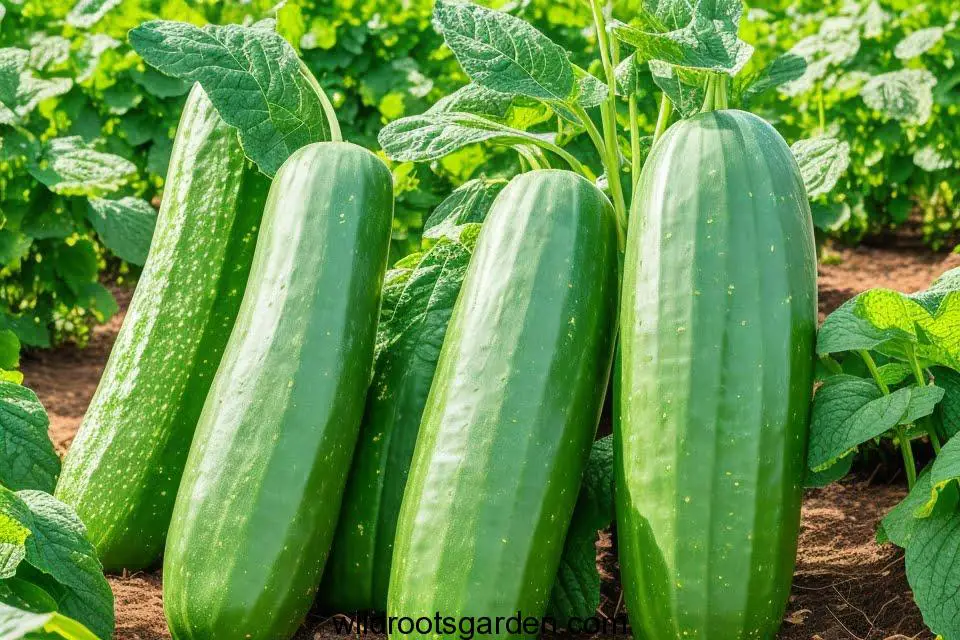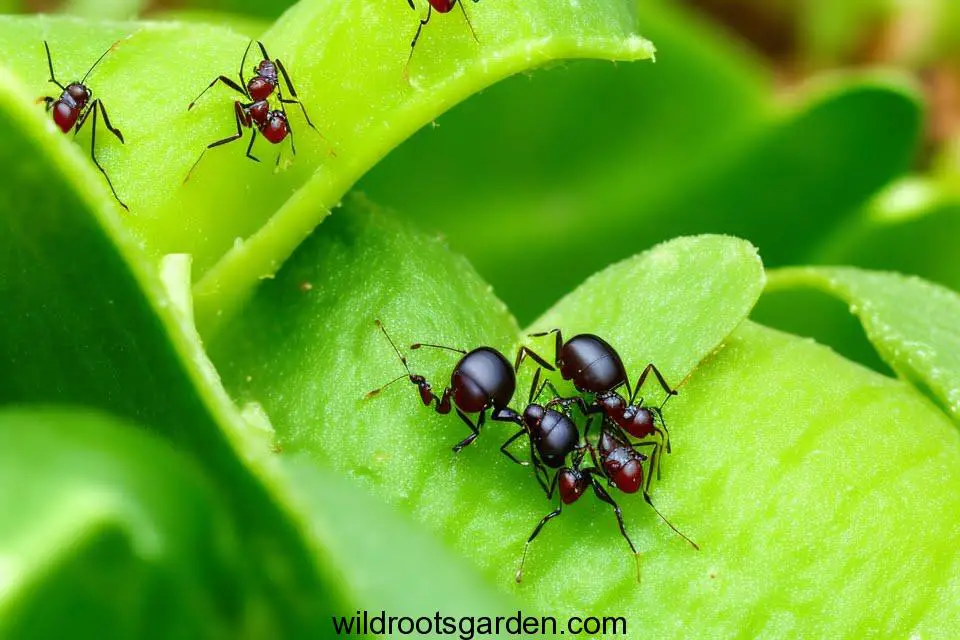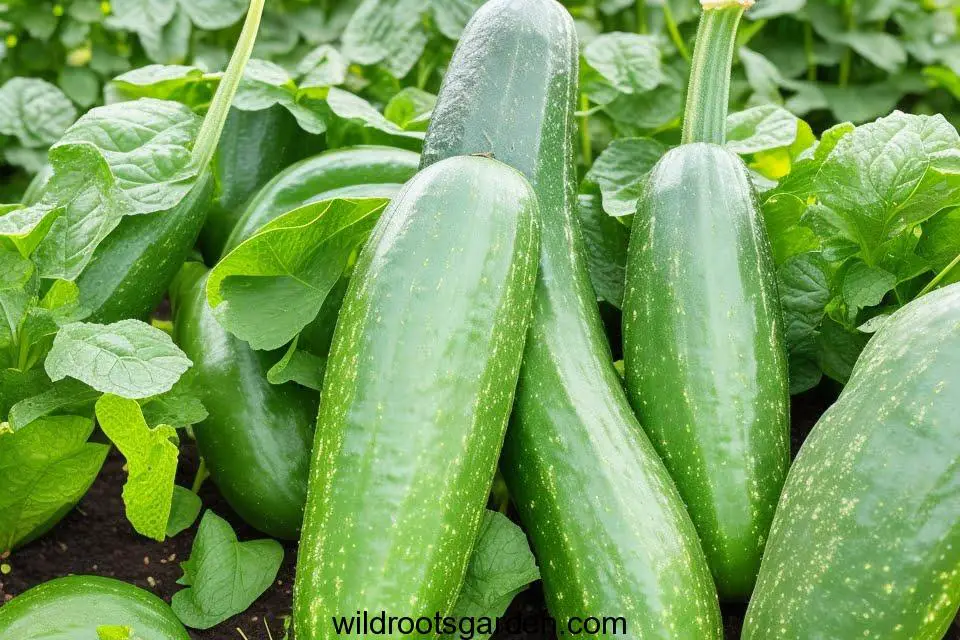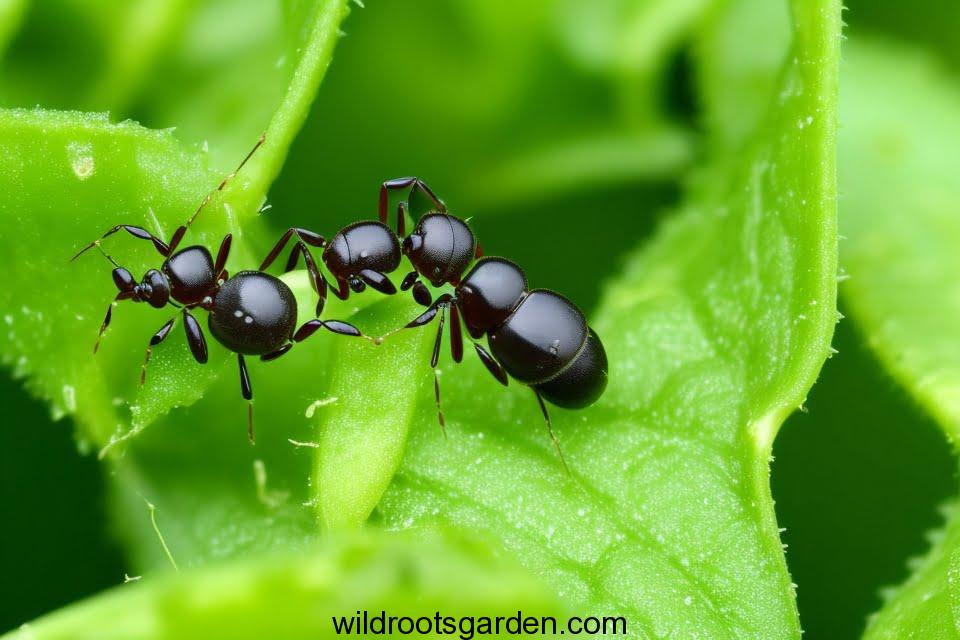Ants on Cucumber Plants: Ants are a common sight in gardens and agricultural fields, and their presence on cucumber plants can have both positive and negative implications. Understanding the intricate relationship between ants and cucumber plants is crucial for effective pest management and maximizing crop yields.
We explore the complex connections between ants and cucumber plants in this work. It is well-recognized that ants have some advantages, such as helping with pollination and warding off various pests. They may, however, also draw poisonous pests like aphids, which can seriously injure cucumber crops. The ecological functions of the particular ant species that are present and their activities in cucumber plants will be clarified.
Also, this study aims to investigate environmentally acceptable methods for controlling ant populations on cucumber plants. Companion planting and natural predators are two integrated pest management strategies that show promise for balancing the advantages and disadvantages of ant presence in cucumber farming.
By comprehending the intricate dynamics of ants on cucumber plants, we can develop sustainable agricultural practices that enhance crop productivity while minimizing potential pest-related issues. This investigation paves the way for a more comprehensive and ecologically sound approach to cucumber farming, ensuring a harmonious coexistence between ants and agriculture.
Table of Contents

The Role of Ants in Cucumber Plants
1. Pollination Assistance
Ants’ participation in pollination is one of the ways they benefit cucumber plants. Ants can help in pollination, while other insects like bees are often recognized as the primary pollinators. Ants accidentally transport pollen grains while moving around the cucumber blossoms, assisting in fertilization.
2. Protection against Pests
By protecting cucumber plants from some pests, ants can serve as their natural defenders. They are known to feed on typical cucumber pests like caterpillars and aphids, bringing down their numbers and causing the least amount of harm to the plants.
3. Nutrient Recycling
Ants contribute to the environment of the cucumber garden by recycling nutrients. When they forage for food, they move organic debris and allow it to rot, which enriches the soil with vital nutrients that cucumber plants need.
Ant Species Found on Cucumber Plants
On cucumber plants, there are a variety of ant species, some of which are more prevalent than others. The Argentine ant, pavement ant, and carpenter ant are a few examples. Each species has unique behavior and traits that can affect how they affect cucumber plants.
Signs of Ant Presence in Cucumber Gardens
Gardeners can spot ants in cucumber gardens by looking for a variety of indicators. The presence of aphids or other pests that ants might be raising for their honeydew, as well as ant nests close to the cucumber plants, are some examples of this.
Benefits of Ants on Cucumber Plants
Ants assist cucumber plants in several ways, promoting their development and general health. Improved pollination, pest defense, and nutrient recycling in the soil are a few of the main benefits.

Potential Issues Caused by Ants
While ants can be beneficial, they may also cause certain issues in cucumber gardens.
1. Aphid Farming
Aphid farming is a practice where some ant species guard aphids while “milking” them for their sweet honeydew excretions. This conduct might boost aphid numbers and possibly harm cucumber plant life.
2. Nectar Theft
Ants occasionally plunder nectar from cucumber blossoms without aiding in pollination. The pollination process may be hampered by this behavior, which also lowers overall fruit production.
Managing Ants in Cucumber Gardens
It’s crucial to use proper management techniques that deter ants from congregating in cucumber gardens without endangering the plants or the environment.
1. Natural Deterrents
Around cucumber plants, certain natural compounds can be employed as ant repellents. They include diatomaceous earth, cinnamon, citrus peels, and vinegar solutions. These deterrents can be placed close to ant entry locations to assist in reducing their activity.

2. Physical Barriers
Creating physical barriers around cucumber plants can prevent ants from reaching them. This can be achieved using sticky barriers, ant moats, or by applying sticky substances like Tanglefoot on supporting structures.
3. Organic Insecticides
When all other measures have failed to control ant populations, organic pesticides can be employed as a last resort. It’s crucial to pick insecticides that are designated as safe for edible plants and to use them according to the directions on the package.
4. Integrated Pest Management (IPM) Techniques
The long-term management of ants in cucumber gardens can be accomplished by implementing Integrated Pest Management (IPM) strategies. IPM combines preventative measures, biological controls, and, if necessary, tailored insecticide applications.
In conclusion, the relationship between ants and cucumber plants is complex and nuanced, with both positive and negative impacts on crop health. While ants can offer benefits like pollination and pest deterrence, their association with aphids can pose challenges for cucumber cultivation. Understanding the specific ant species present and their behaviors is vital for devising effective management strategies.
Integrated pest management techniques should be used to guarantee successful cucumber production. Ant colonies can be deterred from settling on cucumber plants by implementing companion planting with species that naturally repel ants and aphids. Aphid populations can also be reduced by encouraging the presence of natural predators like ladybirds and lacewings.
Using environmentally acceptable methods to control ant populations can support sustainable agriculture by protecting crop yields and maintaining the fragile ecosystem balance. Our comprehension of this complex link will be furthered by upcoming research and joint efforts among farmers, entomologists, and ecologists, which will allow us to improve pest control methods.
By striking the right balance between ant presence and control, we can foster healthier cucumber plants and more resilient agricultural systems, paving the way for a promising and prosperous future in cucumber farming.
FAQs
Do ants harm cucumber plants?
Ants themselves do not directly harm cucumber plants, but certain behaviors like aphid farming and nectar theft can indirectly impact plant health.
How do ants contribute to pollination?
Ants contribute to pollination by inadvertently transferring pollen grains as they move around cucumber flowers.
Are all ant species beneficial for cucumbers?
Not all ant species are beneficial for cucumbers. Some species engage in farming aphids or steal nectar without providing pollination assistance.
Can ants protect cucumber plants from other pests?
Yes, ants can protect cucumber plants from certain pests by preying on them, reducing their populations, and minimizing damage.
What are some natural ways to repel ants from cucumber gardens?
Natural ways to repel ants from cucumber gardens include using cinnamon, citrus peels, vinegar solutions, and diatomaceous earth as deterrents. Creating physical barriers and adopting IPM techniques are also effective methods.

